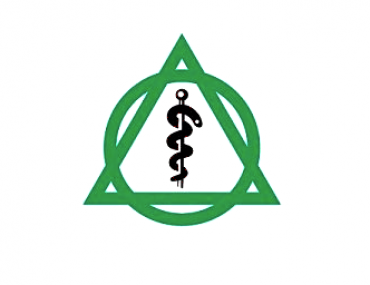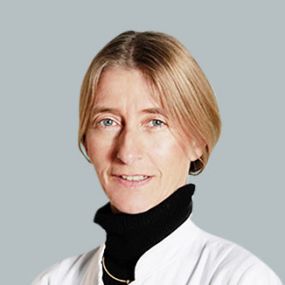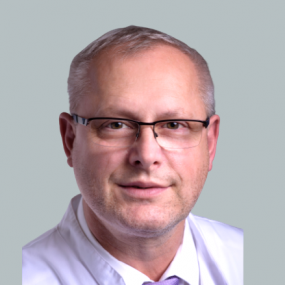Paediatric neurosurgery is becoming increasingly important: Today, the paediatric branch of neurosurgery is broadly recognised as an independent subdiscipline. The Asklepios Kinderklinik Sankt Augustin provides excellent proof of why this recognition is justified. Prof. Martina Messing-Jünger practises there as a proven expert with in-depth knowledge of all neurological conditions in children and young people and excellent skills in determining which specialist treatment is advisable and important.
As a specialist in the field of paediatric neurosurgery, Prof. Martina Messing-Jünger has an excellent knowledge of the entire range of neurological conditions of the brain and the spinal cord which can present in children and young people. In this regard, she works with symptoms which often present with specific characteristics in younger patients in particular. In addition to her outstanding expertise, this experienced consultant also works with a great deal of empathy: Thanks to her experience and natural communication style, Prof. Messing-Jünger works with children in an entirely unique and very successful manner. It, therefore, does not come as a surprise that she is known to be one of the top doctors in the German-speaking area and this has been confirmed by the Leading Medicine Guide, amongst others!
Having a natural communication style with young patients is important for several reasons: When working to cure neurosurgical conditions in children, for example, abnormalities and developmental issues of the nervous system, a sensitive, tactful manner which is suitable for working with children is required during both diagnosis and treatment.
Renowned top doctor: excellent expertise and a high level of empathy
Young patients often go through a great deal, especially when it comes to treatment which lasts for a longer period of time. In this regard, in the case of abnormalities, for example, which are often seen in paediatric neurosurgery, building mutual trust is the basis for treatment success. Prof. Martina Messing-Jünger works with abnormalities of the skull, brain, spine and spinal cord in her day-to-day work and often also works with combinations of various different abnormalities.
Skull abnormalities are often identified at a very young age in children. The main indication for an operation is increased cerebral pressure which, if left untreated, leads to consequences such as loss of sight. However, cosmetic aspects also play a major role, which is why Prof. Martina Messing-Jünger often operates on children aged around six months. The specialist relies on an experienced, highly-skilled team in order to minimise the risks. This team includes neurosurgeons, as well as maxillofacial surgeons and anaesthetists.
Abnormalities: Neurosurgical operations with a great deal of experience
Brain malformations often also require neurosurgical intervention. Where possible, an endoscopic operation is carried out in the paediatric neurosurgery facility in Sankt Augustin. The most common brain abnormalities to be treated here include, for example, arachnoidal cysts, encephaloceles, schizencephaly and Chiari malformation. These conditions all affect either the brain tissue or meninges.
Abnormalities of the spine should also be treated at an early stage. As with most conditions of this kind, the following also applies to spinal abnormalities: Operations and treatment require very specialised approaches in children. That is why it’s good to be able to rely on an experienced neurosurgeon!
Brain tumours in children are also dealt with in a specialised manner. There are lots of different types of brain tumour, which can manifest themselves in different ways in young patients with regard to the localisation and age groups. Using her wealth of experience, Prof. Martina Messing-Jünger is able to ensure that she provides the best possible treatment for each individual case of tumour diseases. Her in-depth knowledge of all the details of this field, including genetic factors associated with these complex conditions, is a key prerequisite for doing so.
Whether radiotherapy is advisable for brain tumours, which chemotherapy options are worth considering and whether alternative treatment options are available, are all questions which can be answered by Prof. Martina Messing-Jünger, generally speaking after extensive discussions with the parents. Where possible, the children affected by the disease are included in the decision-making process. A great deal of sensitivity is required here too: The renowned consultant is generally able to ascertain in advance whether a child would find being included in this decision-making process respectful or find it to be a burden. The individual decisions vary a lot, which also applies to the prognosis and course of tumour diseases in children. This also applies to types of tumour, which may present at different stages in childhood. Tumours, including mixed tumours, which are found in young patients more frequently are germ cell tumours, brain stem tumours, ependymomas, pilocytic or malignant astrocytomas, medulloblastoma and glioblastoma.
The expert in brain tumours and hydrocephalus - and not only in this region
Another area of expertise for Prof. Martina Messing-Jünger is in the field of treating hydrocephalus, also known as water on the brain. The increased accumulation of water on the brain can lead to a significant increase in pressure if left untreated, which has neurological consequences. The specialist in paediatric neurosurgery at the Asklepios Kinderklinik Sankt Augustin has a thorough understanding of the various causes and forms of hydrocephalus and is always able to choose the right treatment strategy on a scientific basis. She decides whether a valve operation or other type of surgical treatment is the right course of action or whether an endoscopic procedure would come into question as an additional or alternative treatment option. This is very important because there are various forms of hydrocephalus, namely, hereditary and acquired, as well as mixed forms. In addition, many conditions can also be associated with hydrocephalus.
When sensory or electrical stimuli cause changes to the electrical activity of the brain, this is known as evoked potentials in the field of electrophysiology and is also an additional area of expertise for Prof. Martina Messing-Jünger. Depending on the diagnosis and the case in question, the optic nerve or sensory nerve can be shown on the scalp without any pain. The motor pathways can also be investigated in this way. In the field of paediatric neurosurgery, this method is only used during operations.
In order to investigate sensory evoked potentials, the experienced team uses electrodes to stimulate the hands and feet of young patients using low levels of electricity and measures when this stimulus arrives in the head. This enables Prof. Martina Messing-Jünger to establish the condition of the spinal cord, specifically whether it is transmitting signals properly. This painless investigation, which only lasts for around twenty minutes, is carried out in children from three years of age and above. Patients under three years of age receive, if necessary, gentle sedation during the SEP investigation, for example, after an MRI when sedated or in intensive care. This measurement is an investigation method which is used regularly in the field of paediatric neurosurgery in Sankt Augustin during the neurosurgical, paediatric and orthopaedic sessions because it documents the course of a disease very accurately, for example, in the case of Chiari malformation, syringomyelia, tumour disease or meningitis.
An overview of nerve cords: state-of-the-art surgical methods
Optic nerves and sensory nerves also play an important role in other diagnostic methods, for example, in VEP, or visual evoked potentials. This is used in children to diagnose multiple sclerosis or scotoma. This method is also taken into consideration for patients with a brain tumour.
The methods which Prof. Messing-Jünger’s team uses in the field of paediatric neurosurgery in Sankt Augustin are all carried out at the very highest level. Intraoperative monitoring, i.e. monitoring of the nerve function during an operation, is included in this. This innovative method enables the nerves to be monitored with regard to sensitivity and motor function on an individual basis for sight and hearing. This is an ideal aid for surgeons, allowing, for example, healthy tissue to be distinguished from other tissue and nerve cords to be identified easily, which hugely increases the level of safety. In particular, when infants undergo brain or spinal cord surgery, sometimes even before they reach an age of five months, this enables damage to the nerve and certain nerve systems and therefore, the associated paralysis and loss of feeling to be prevented.
Prof. Martina Messing-Jünger and the entire paediatric neurology team at the Asklepios Kinderklinik Sankt Augustin profit from the optimised structures of the entire hospital complex. This is because conditions relating to functional neurosurgery, for example, epilepsy or spasticity, require close cooperation with multiple disciplines when treating children. Therefore, it is important that interdisciplinary methods of thinking and working are fundamental principles for all employees. This productive cooperation designed to help children ensures a first-class complete healthcare package, which can only be provided in centres, which have the special facilities required to do so.
The hospital in Sankt Augustin is exemplary in this regard too: Specialists from all fifteen departments are available here around the clock in order to provide fast and long-lasting treatment at an international level. A total of almost 800 employees work hard to support the provision of healthcare to young patients.



